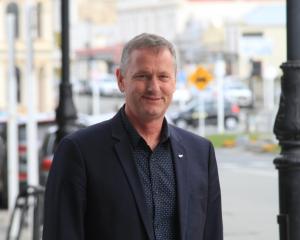When William "Billy" Casey was diagnosed with a severe brain malformation at just six days old, doctors said he only had a 50% chance of reaching his first birthday.
The Microcephaly and Semi-lobar Holoprosencephaly disorder means the two sides of his brain are fused together, when they should be separated.
He is also missing the part of the brain responsible for having a sense of humour and being able to recognise facial expressions.
He is now 19 months old, and thanks to therapy he has received on the Gold Coast, he has been able to develop new neurological pathways and his quality of life has greatly improved.
But now Billy’s parents Hayley and Mathew have been left reeling by changes by the Whaikaha Ministry of Disabled People, which limit how they can spend government funding.
Mrs Casey said the news in March was heartbreaking.
"When I realised what it would mean ... [it] was devastating.
"It certainly feels like the people that are making these decisions have no experience with disability whatsoever."
The changes mean the family can no longer use government funding for the therapy on the Gold Coast, or for unfunded medication which cost more than $500 a month.
Mrs Casey said the therapy offered by the Centre of Movement on the Gold Coast to Billy, who cannot eat and drink without aspirating and has been fed through a tube since he was six months old, could not be matched in New Zealand.

"It really is life-changing and it should be funded."
The Caseys were able to use their respite funding for the first session and then partially for a second session.
"I only got through by the skin of my teeth on that [second] one. I had to really battle to get that through.
"The only reason I managed to get through was because I already paid the deposit and it was non-refundable."
Now, her mother, Karen Fraser, as well as other friends and family, have banded together to help organise a gala day on January 11 next year to raise money for future sessions.
While they had not confirmed everything, Mrs Casey hoped they would have arts and crafts stalls, live music, bouncy castles and even laser tag.
They planned to make it an annual event that would outlive Billy.
"We don’t know what William’s life expectancy is going to be but it would be amazing, in his honour, if we can continue it to help other people get their kids to the therapy."
The family have set up social media accounts, called Building Billy’s Brain, where a link can be found to donate to the gala day.
Whaikaha commissioning, design and delivery deputy chief executive Amanda Bleckmann said the amount of funding Billy had been allocated remained the same.
The changes were made to keep the ministry ‘‘within our appropriation’’, she said.
‘‘Like all agencies, Whaikaha is required to manage its spending within the budget it is allocated. The cost of and demand for disability services has been putting pressure on the services we fund.’’
Child development services are prioritised based on need.
‘‘When determining this need, a range of factors are considered, including the safety of the tamariki. We encourage families to discuss their child’s needs with their local child development service if they have concerns.’’
She understood some wait times for children were ‘‘longer than others’’.
‘‘Services manage their own waitlists to best serve their communities and use a variety of approaches to deliver support to as many children as possible, for example providing telehealth services and group sessions and working collaboratively across services and regions.’’
Most Child Development Services are funded by the ministry and delivered by Health NZ Te Whatu Ora.
* This story was updated on September 3 with comment from Whaikaha.












